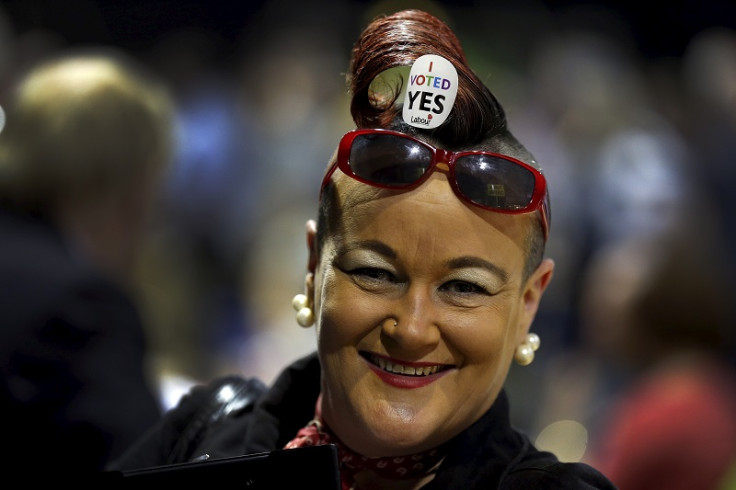Ireland: First results suggest 'Yes' vote landslide in same-sex marriage poll

Ireland looks poised to become the first country to introduce same-sex marriage through a popular vote with early tallies pointing to a 2:1 landslide victory for the 'Yes' campaign.
Irish media announced that in many districts the Yes vote was well over 70% including Dublin West where 71% voted in favour with just 29% against.
Final Tally in Dublin West Yes 29665 (71pc) No 12229 (29%) Turnout 64% #MarRef #TallyTweets
— Independent.ie (@Independent_ie) May 23, 2015The full result of the referendum is expected to be announced at 4pm.
The campaign received a swell of momentum in the weeks leading up to the vote, with yes voters travelling back to Ireland in their droves to cast their ballots.
It prompted a prominent "No" campaign advocate John Murray from the Roman Catholic Iona Institute to tell Irish radio early Friday that he expected to lose.
"Everyone is saying it's a Yes and I'm not going to argue with that," he said.
The Institute's director, David Quinn, has also conceded defeat in a tweet.
Congratulations to the Yes side. Well done. #MarRef
— David Quinn (@DavQuinn) May 23, 2015The high turnout favoured yes campaigners as the efforts to get the vote out worked effectively, especially among younger voters and early polls suggested that few if any locations were showing a no vote.
In typical traditional rural areas, the vote is coming in at 50:50.
This 'yes; trend is being matched in places across the country. The especially early tallies in Mayo, Wexford, Wicklow, Roscommon and Clare all indicate a 'yes' vote. Labour Party junior minister Kevin Humphreys, who has a reputation for calling vote results early, says the vote will be yes.
"The trend is so big here, it has to be matched to a degree across the country," he said.
Fianna Fail leader Micheal Martin also said he thinks it will be a healthy 'yes' vote.
Martin said he had never seen so many young people voting before.
Final results are not expected until later today in the poll, which asked Ireland's 3.2m registered voters whether they wanted to change the nation's constitution to allow gay and lesbian couples to marry.
"I think it's won. I've seen bellwether boxed open, middle-of-the-road areas who wouldn't necessarily be liberal and they are resoundingly voting yes," Equality Minister Aodhan O'Riordain told Reuters at the main count centre in Dublin.
Counting begins
Polling stations shut at 10pm on Friday and counting began at 9am on Saturday morning.
The upper courtyard of Dublin Castle will be open to 2,000 people on Saturday for people to view see the announcements on a big screen on a first-come, first-serve basis.
Before Friday, votes had been cast in some islands, hospitals, hospices and nursing homes.
All Irish citizens who are registered to vote are allowed to vote in the referrendum, but there is no postal voting. This lead to many people returning to Ireland to cast their votes.
The referendum was being held 22 years after homosexual acts were decriminalised in Ireland.
In 2010, the Irish government enacted civil partnership legislation, which provided legal recognition for same-sex couples. However, there are some difference between civil partnership and marriage, the most important being that marriage is protected in Ireland's constitution while civil partnership is not.
A constitutional convention established by the Irish government in 2013 considered the specifics of a proposal on extending marriage rights, as well as discussing other changes to the constitution.
A separate referendum, on whether the eligibility age of presidential candidates should be lowered from 35 to 21 was also being held at the same time, along with a parliamentary by-election In the Carlow-Kilkenny constituency.
Same-sex marriage is currently legal in 19 nations across the world.
© Copyright IBTimes 2025. All rights reserved.



















